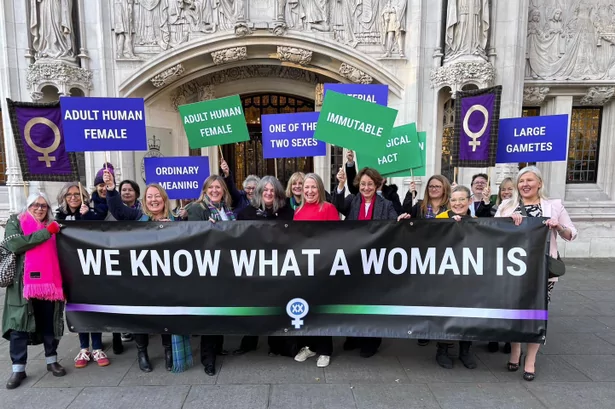The UK Supreme Court has ruled that the legal definition of “woman” in the Equality Act 2010 refers only to biological females.
The decision confirms that transgender women – even those with a Gender Recognition Certificate (GRC) – are not legally considered women for the purposes of sex-based rights under the law.
The unanimous decision followed an appeal by the campaign group For Women Scotland.
The group challenged the Scottish Government’s use of the term “woman” in a law designed to increase female representation on public boards.
That law, passed in 2018, defined “woman” to include anyone living as a woman or undergoing gender reassignment, including people with a GRC.
The court said this was wrong and unlawful.
It said the Equality Act was written to protect people based on biological sex and that allowing gender identity to replace that definition would make the law unworkable and confusing.
In their judgment, the justices said that using “woman” to include people born male but who identify as female could undermine the purpose of sex-based protections – such as single-sex changing rooms, toilets, sports, and women’s refuges.
They also pointed out that biological women are the only group who can become pregnant, and legal protections around maternity in the Equality Act are based on that biological reality. If the term “woman” were changed to include biological males, those protections could lose meaning.
The court also warned that including transgender women in the legal definition of “woman” could interfere with other groups’ rights – such as the right of lesbian women to create or join women-only associations, or the ability of schools and organisations to run women-only services or spaces.
However, the court was clear that transgender people remain protected under the law. The Equality Act includes specific protections for people undergoing or who have undergone gender reassignment. Trans people can also bring legal cases if they are discriminated against based on how they are perceived.
The decision applies across the whole of the United Kingdom and sets a legal precedent for how the words “sex,” “woman,” and “man” must be interpreted in UK law. The court said these words must be used consistently throughout the Equality Act – and always refer to biological sex.
In a statement, For Women Scotland said “the Supreme Court has confirmed what women across the country already knew. Sex matters.
“This is a landmark victory, not just for For Women Scotland, but for every woman who has been told to sit down, shut up, and make way.
“The Court has recognised that women’s rights must be based on biological sex, not on self-declared identity.
“This ruling restores legal clarity and reaffirms the purpose of the protections written into the Equality Act.
“This win protects all women, including trans-identifying females, by ensuring maternity rights, women-only spaces, and female-focused services are grounded in reality.
“It puts a clear boundary around what it means to be female in law and pushes back against a men’s rights movement that has tried to colonise womanhood.
We thank the brave women who fought this case and the thousands who stood behind them. This is your victory. But the fight isn’t over. We will keep pushing until sex-based rights are not only protected—but respected.”








